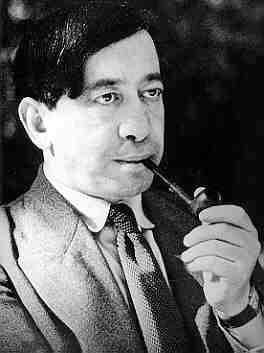- Siegfried Kracauer
Infobox Writer
name = Siegfried Kracauer

caption = A young Siegfried Kracauer
birthdate = birth date|1889|2|8
birthplace =Frankfurt am Main
deathdate = death date and age|1966|11|26|1889|2|8
deathplace =New York City ,United States
occupation =Journalist ,Sociologist
movement =
influences =Marx
influenced =Adorno ,Tucholsky Siegfried Kracauer (
February 8 ,1889 ,Frankfurt am Main –November 26 ,1966 ,New York ) was a
Germanwriter , journalist, sociologist,cultural critic , and film theorist.Biography
Born to a
Jew ish family inFrankfurt , Kracauer studied architecture from 1907 to 1913, eventually obtaining a doctorate in engineering in 1914 and working as an architect inOsnabrück ,Munich , andBerlin until 1920.From 1922 to 1933 he worked as the leading film and literature editor of the "
Frankfurter Zeitung " (a leading Frankfurt newspaper) as its correspondent in Berlin, where he worked alongsideWalter Benjamin andErnst Bloch , among others. Between 1923 and 1925, he wrote an essay entitled "Der Detektiv-Roman" ("The Detective Novel"), in which he concerned himself with phenomena from everyday life in modern society.Kracauer continued this trend over the next few years, building up theoretical methods of analyzing circuses, photography, films, advertising, tourism, city layout, and dance, which he published in 1927 with the work "Ornament der Masse" (published in English as "The Mass Ornament").
In 1930, Kracauer published "Die Angestellten" ("The Salaried Masses"), a critical look at the lifestyle and culture of the new class of white-collar employees. Spiritually homeless, and divorced from custom and tradition, these employees sought refuge in the new "distraction industries" of entertainment. Observers note that many of these lower-middle class employees were quick to adopt
Nazism , three years later.Kracauer became increasingly critical of
capitalism (having read the works ofKarl Marx ) and eventually broke away from the "Frankfurter Zeitung". About this same time (1930), he married Lili Ehrenreich. He was also very critical ofStalinism and the "terrorist totalitarianism" of the Soviet government.ref|KracauerWith the rise of the Nazis in Germany in 1933, Kracauer migrated to
Paris , and then in 1941 emigrated to theUnited States .From 1941 to 1943 he worked in the
Museum of Modern Art inNew York City , supported byGuggenheim andRockefeller scholarships for his work inGerman film . Eventually, he published "" (1947), which traces the birth of Nazism from the cinema of theWeimar Republic as well as helping lay the foundation of modernfilm criticism .In 1960, he released "Theory of Film: The Redemption of Physical Reality", which argued that realism is the most important function of cinema.
In the last years of his life Kracauer worked as a sociologist for different institutes, amongst them in New York as a director of research for applied social sciences at
Columbia University . He died there, in 1966, from the consequences of pneumonia.His last book is the posthumously published "History, the Last Things Before the Last" (New York, Oxford University Press, 1969).
Ideas and influence
Kracauer analyzed and critiqued the phenomena of modern mass culture.
In gatherings in urban spaces and in the mechanical movement of
line dance rs, for example, he saw an emerging social mentality, but one which was lacking in purpose ("The Mass Ornament"). In such observations, Kracauer was moving toward an idea of social wholeness similar to the one espoused byGyörgy Lukács in his idea of "totality". Like Lukacs, Kracauer ultimately translated this search for totality into a belief in political Marxism.He built up a general theories based upon dozens of smaller examples. His attention to detail lends itself to an inductive method.
Kracauer was also one of the first to treat the cinema seriously; in it he saw a mirror of social conditions and desires.
Theodor Adorno viewed Kracauer as one of the major contributors to his work.
Kurt Tucholsky admired Kracauer's scientific approach to writing.References
* Kracauer, Siegfried, "Theory of Film: The Redemption of Physical Reality", New York
Oxford University Press , 1960, p.221.Bibliography
Primary literature
*
*
*
*
*
* cite book |first=Siegfried |last=Kracauer | coauthors=Quintin Hoare|title=The Salaried Masses: Duty and Distraction in Weimar Germany| year=1998
* cite book |first=Siegfried |last=Kracauer | coauthors=Gwenda David & Eric Moshbacher| title=Jacques Offenbach and the Paris of His Time| year=2002econdary literature
*
*
*
Wikimedia Foundation. 2010.
